Online Breaktfast-Debate with Sonia Vila Nuñez, Head of Unit of “Management and Resources”, of the Presidential Service I.D.E.A and Policy Coordinator in the Cabinet of the President von der Leyen and her Deputy Head of Cabinet B. Seibert – Cabinet of the President von der Leyen, European Commission
On Monday 18 January 2021, the Official Spanish Chamber of Commerce in Belgium and Luxembourg organised a new virtual breakfast debate in the framework of its “Business Circle” platform. Sonia Vila Nuñez, Head of Unit “Management and Resources” of the Presidential Service I.D.E.A. – Inspire, Debate, Engage and Accelerate Action, European Commission and Policy Coordinator of President von der Leyen and her Head of Cabinet, B. Seibert- President von der Leyen’s Cabinet, participated in the debate. The breakfast focused on the “Priorities of the European Commission for 2021: Impact on Spanish businesses”.
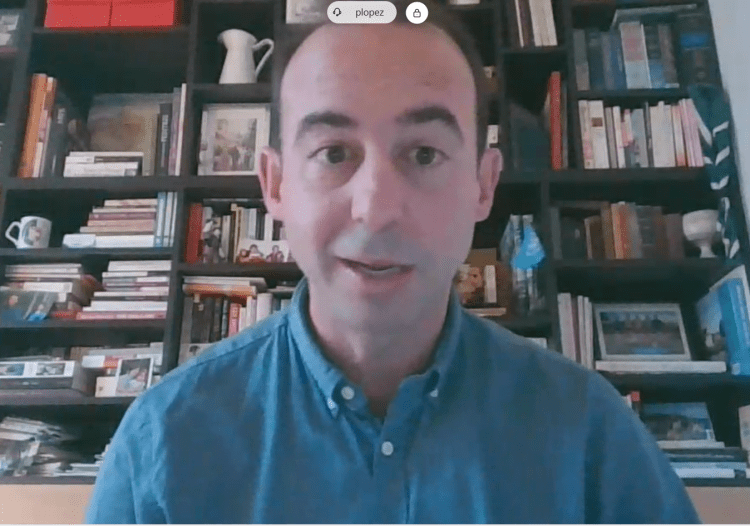 Pablo López Álvarez, Vice-President of the Chamber of Commerce and moderator of the event, welcomed and thanked the speaker and all the attendees for their participation.
Pablo López Álvarez, Vice-President of the Chamber of Commerce and moderator of the event, welcomed and thanked the speaker and all the attendees for their participation.
Sonia Vila Nuñez began by presenting the I.D.E.A. presidential service as the ambition of the current presidency to bring academic and private sector debates closer to the legislative work of the institutions. She then highlighted the special context in which the European Commission’s Work Programme for 2021 will be developed with a clear priority on implementing the legislative measures taken in 2020. The current Work Programme is based on the need to achieve a rapid economic and social recovery from the pandemic. This will require linking this recovery to the dual, green and digital, transition and to an European resilience based in a strong social agenda and greater strategic autonomy. The Policy Coordinator also highlighted the Commission’s extensive work against Covid-19 and the various contracts signed with up to 7 vaccine manufacturers to cover vaccination in Europe and assistance to less developed countries. The focus was also on the various historical agreements recently reached such as the Multiannual Financial Framework 2021-2027, the Next Generation EU recovery fund, and the Brexit agreement. Regarding the recovery funds, the speaker detailed the role of the national recovery plans and their link with the European semester and its country-specific recommendations.
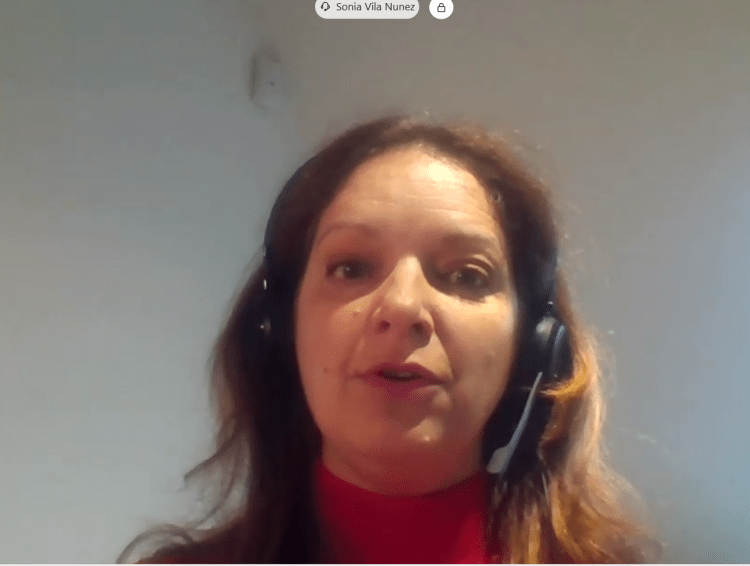 Regarding the Work Programme for 2021, Sonia Vila developed the list of legislative and strategic initiatives that the European Commission plans to carry out in 2021. The Green Deal will continue to be of great importance due to the need to update energy and climate legislation with the new emission reduction targets for 2030. This will be developed through the comprehensive “Fit 4 55” legislative package in areas such as taxation, construction, and climate diplomacy, among others. Other initiatives to be presented in 2021 include the border carbon adjustment mechanism and the strategies of 2030 biodiversity, circular economy and “Farm to Fork”. The second of the strategic axes will be the digital transition to achieve the objectives set for 2030. Any legislative development in this area will be based on a commitment with privacy and data control, together with the promotion of connectivity for all as the basis of a European digital identity. The future proposal for the development of a European digital tax and the reform of legislation for people who provide services through digital platforms stand out in this area. Finally, the work programme will also include developments in other areas such as competition law, industrial strategy, banking union, trade policy, social rights, or the building of a new transatlantic relationship.
Regarding the Work Programme for 2021, Sonia Vila developed the list of legislative and strategic initiatives that the European Commission plans to carry out in 2021. The Green Deal will continue to be of great importance due to the need to update energy and climate legislation with the new emission reduction targets for 2030. This will be developed through the comprehensive “Fit 4 55” legislative package in areas such as taxation, construction, and climate diplomacy, among others. Other initiatives to be presented in 2021 include the border carbon adjustment mechanism and the strategies of 2030 biodiversity, circular economy and “Farm to Fork”. The second of the strategic axes will be the digital transition to achieve the objectives set for 2030. Any legislative development in this area will be based on a commitment with privacy and data control, together with the promotion of connectivity for all as the basis of a European digital identity. The future proposal for the development of a European digital tax and the reform of legislation for people who provide services through digital platforms stand out in this area. Finally, the work programme will also include developments in other areas such as competition law, industrial strategy, banking union, trade policy, social rights, or the building of a new transatlantic relationship.
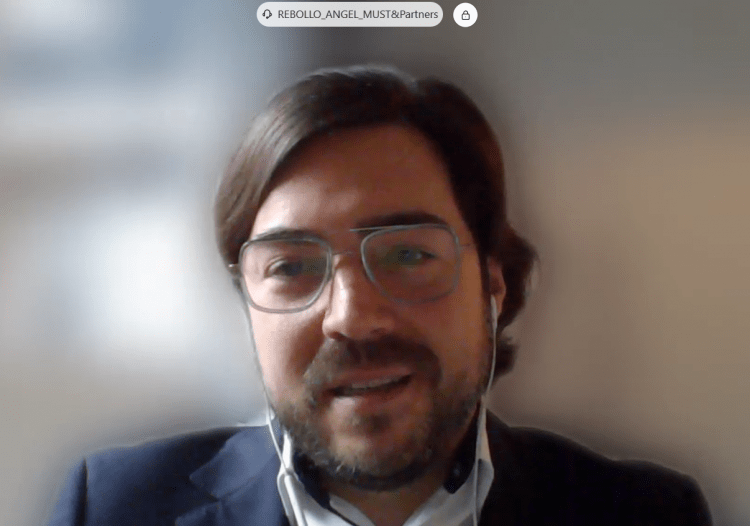 Afterwards, on behalf of the member company and sponsor of the event Must & Partners, its Senior Partner, Ángel Rebollo, took the floor and thanked the speaker for her participation. He also wanted to emphasize the importance of European recovery funds for Spain, especially in certain sectors, as well as the potential social impact that these may have.
Afterwards, on behalf of the member company and sponsor of the event Must & Partners, its Senior Partner, Ángel Rebollo, took the floor and thanked the speaker for her participation. He also wanted to emphasize the importance of European recovery funds for Spain, especially in certain sectors, as well as the potential social impact that these may have.
During the question time, the attendees were able to put forward their doubts and comments on numerous issues of interest. Thus, topics such as the European pillar of social rights and its possible link to the care economy, the technological skills deficit for digital transition, digital and energy taxation, or the inclusion of criteria for equality and non-discrimination of people with disabilities in national recovery plans were addressed.
From the Official Spanish Chamber of Commerce in Belgium and Luxembourg we would like to thank Sonia Vila Nuñez, our member company Must & Partners for sponsoring this event and all the attendees for their presence.
Event sponsored by:


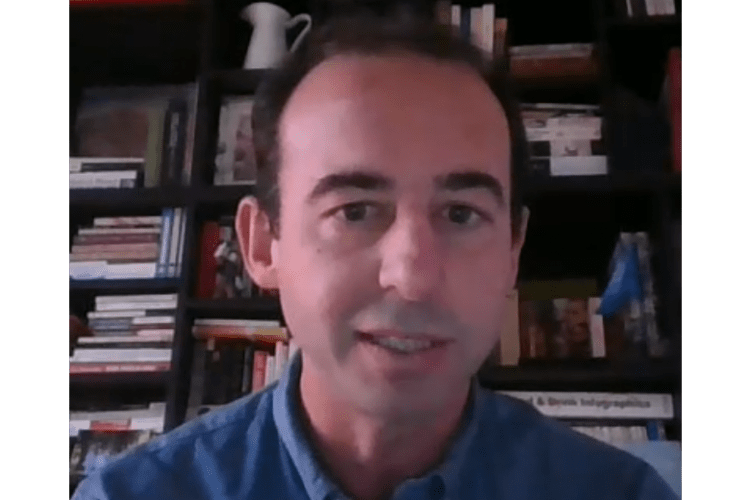
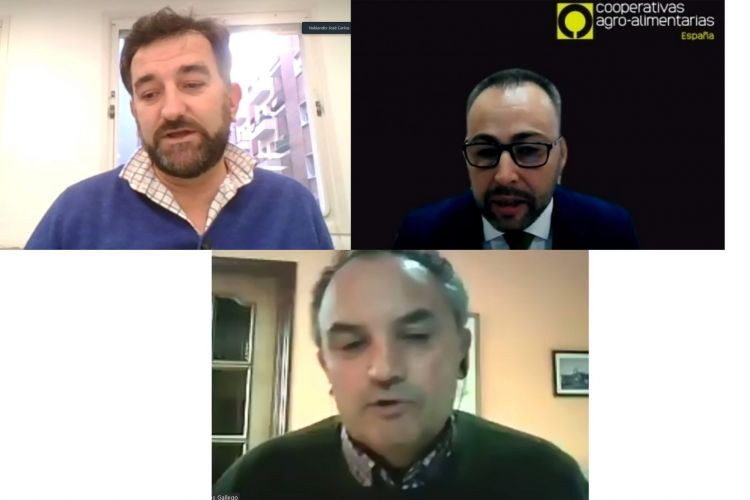
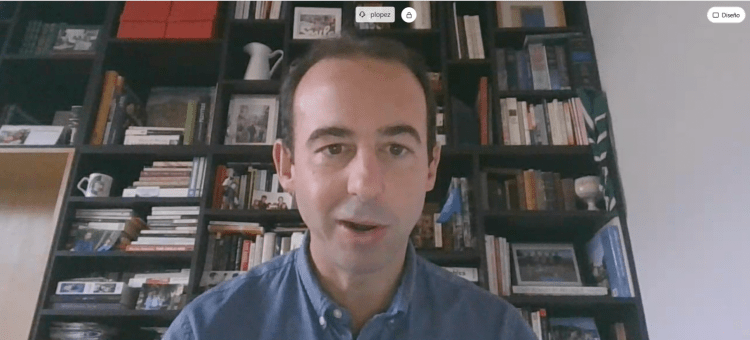
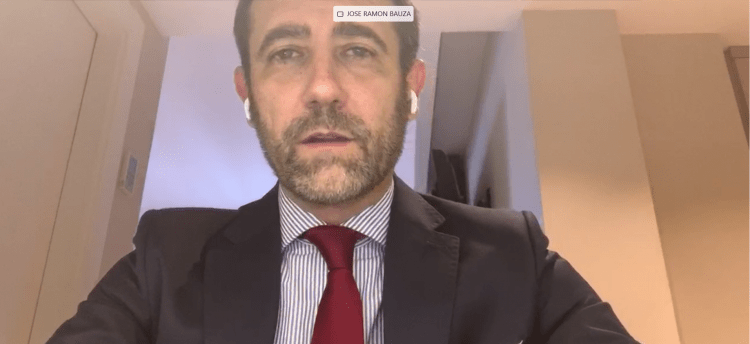
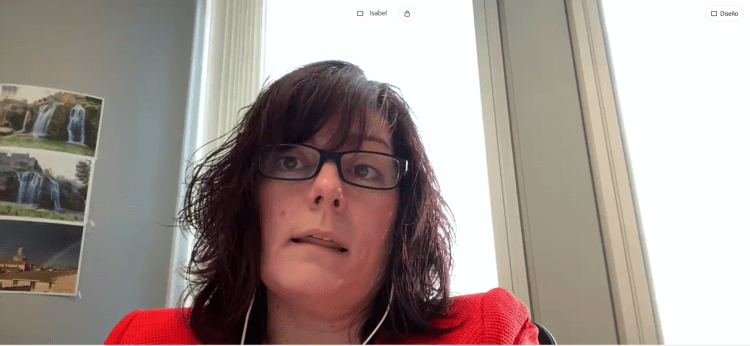
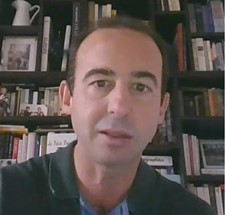
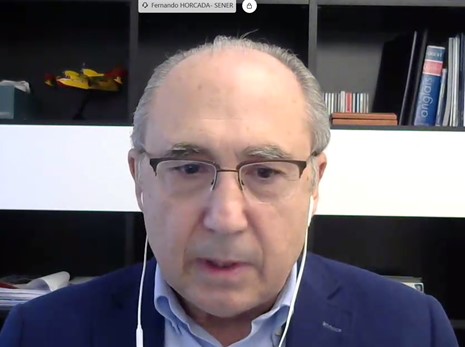

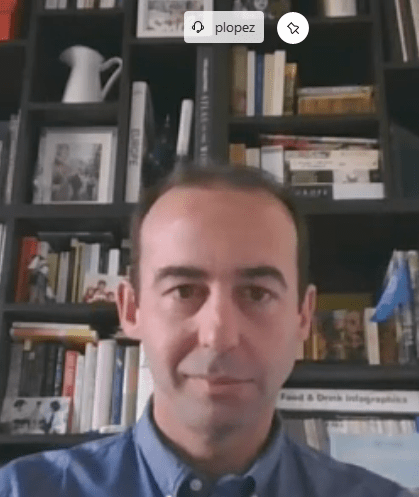
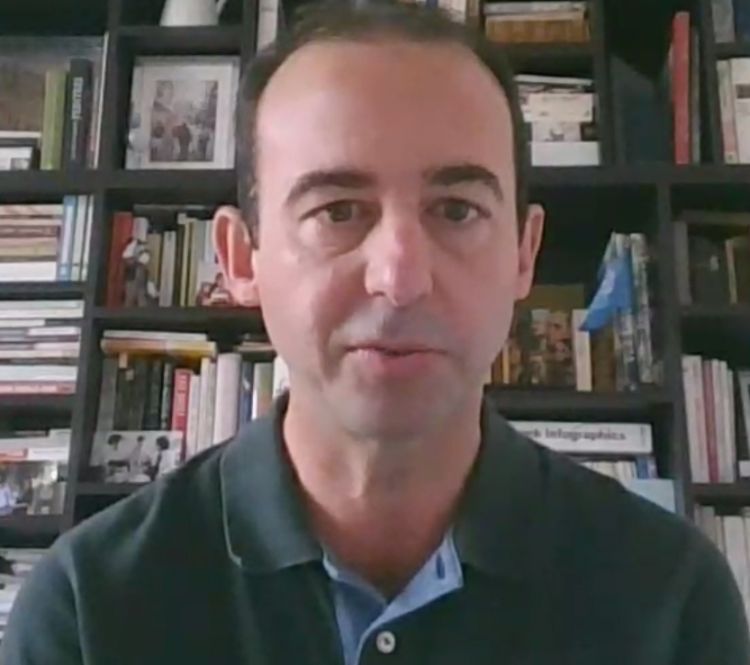
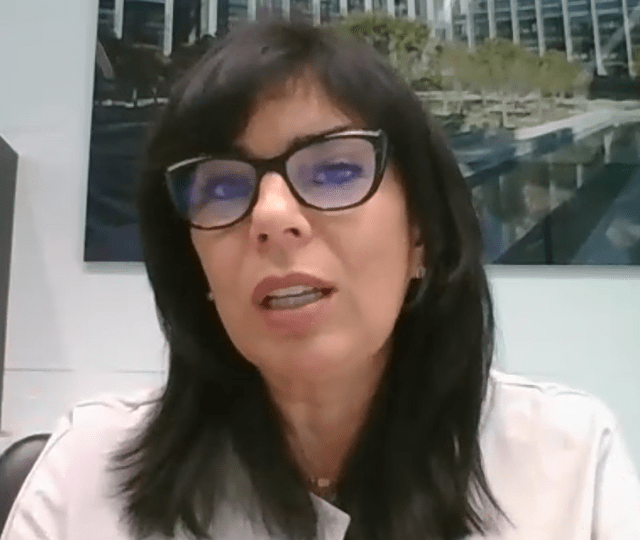

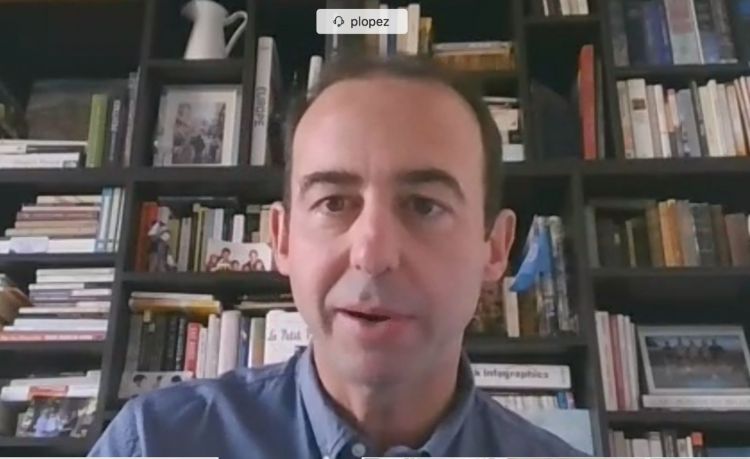
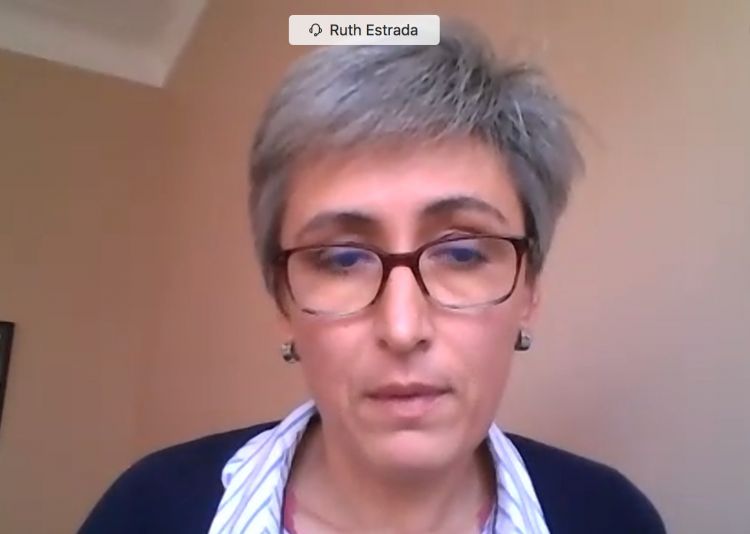
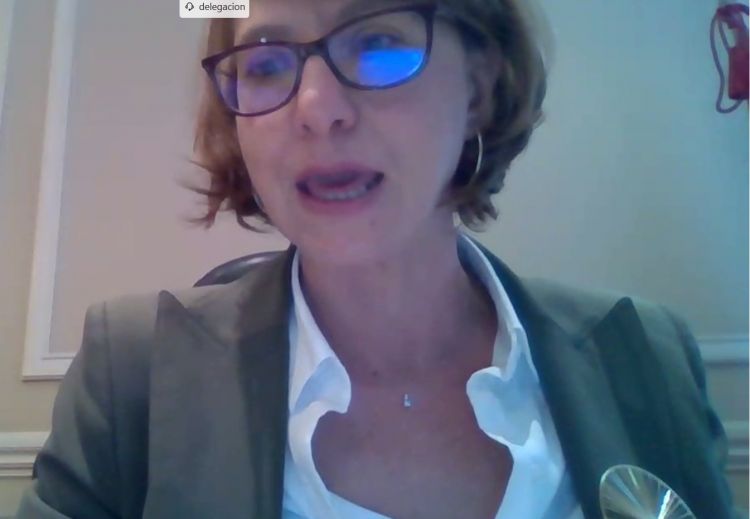
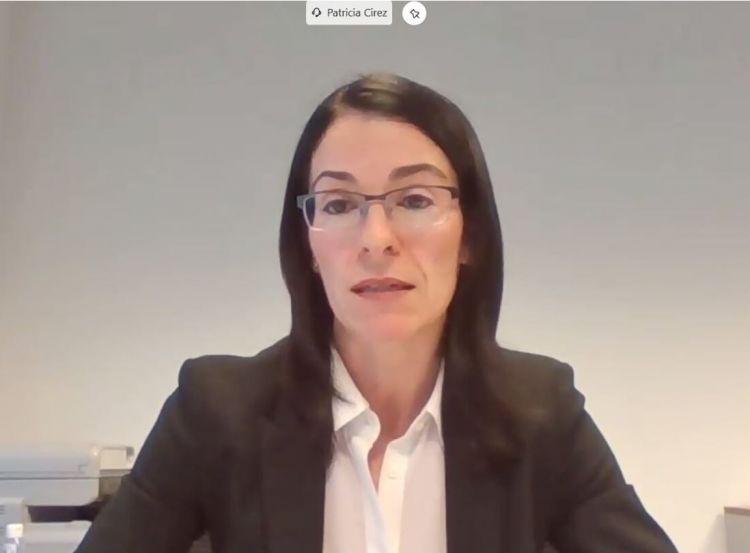

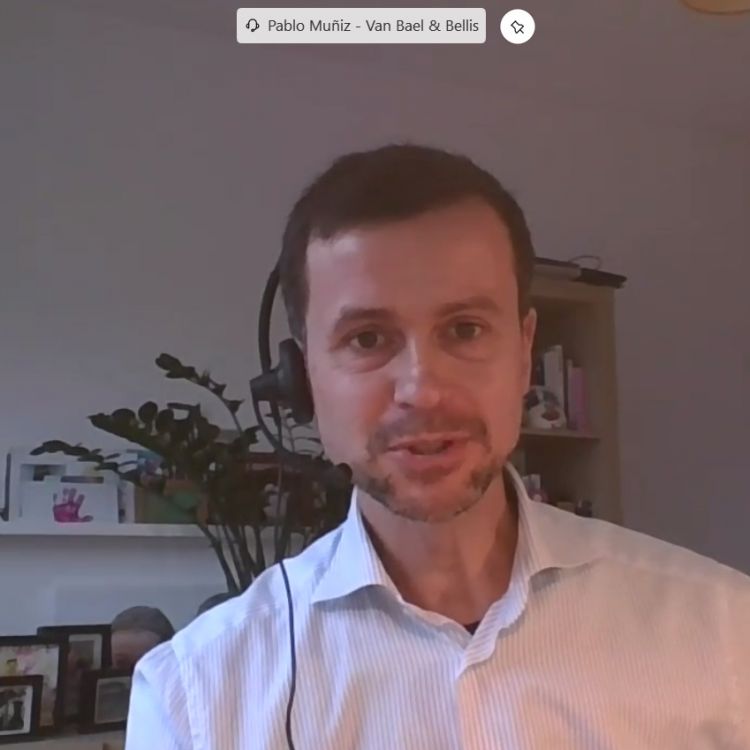
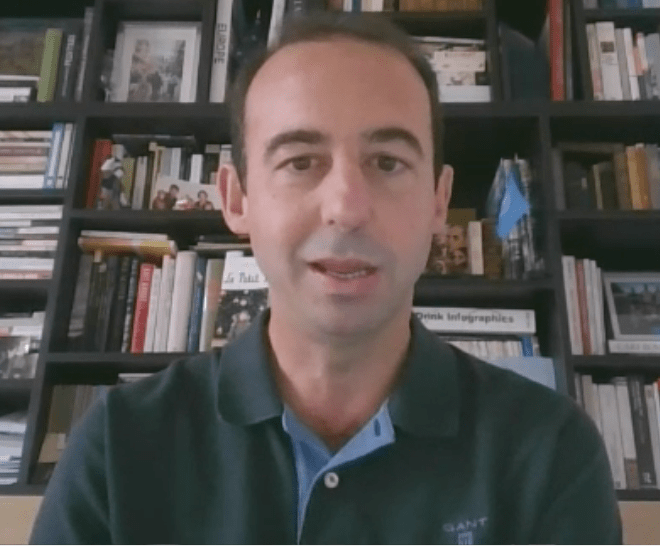
 participation in the Breakfast-Debate. Luengo made a brief presentation of the speaker along with a general description of the agenda for the digitisation that is managed from the Office of the Vice President Vestager. He also wanted to highlight Indra’s commitment with new international markets in this new wave of digital innovation.
participation in the Breakfast-Debate. Luengo made a brief presentation of the speaker along with a general description of the agenda for the digitisation that is managed from the Office of the Vice President Vestager. He also wanted to highlight Indra’s commitment with new international markets in this new wave of digital innovation.
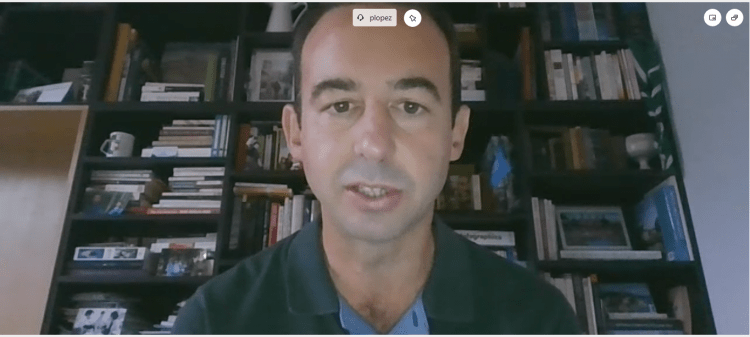 Afterwards, on behalf of the member company and sponsor of the event, Iberdrola, its Director of European Public Affairs, Eva Chamizo, took the floor and thanked the spekaer and the entire team of the European Commission’s Working Group for Recovery and Resilience, for their great work in contributing from the European institutions to economic recovery. Chamizo stressed the need to commit to a green and sustainable recovery linked to the objectives of the Green Deal and allows private investment in clean energy. She also highlighted Iberdrola’s long career in prioritising investment in green energy, which made Iberdrola stand out among the leading companies in the sector.
Afterwards, on behalf of the member company and sponsor of the event, Iberdrola, its Director of European Public Affairs, Eva Chamizo, took the floor and thanked the spekaer and the entire team of the European Commission’s Working Group for Recovery and Resilience, for their great work in contributing from the European institutions to economic recovery. Chamizo stressed the need to commit to a green and sustainable recovery linked to the objectives of the Green Deal and allows private investment in clean energy. She also highlighted Iberdrola’s long career in prioritising investment in green energy, which made Iberdrola stand out among the leading companies in the sector.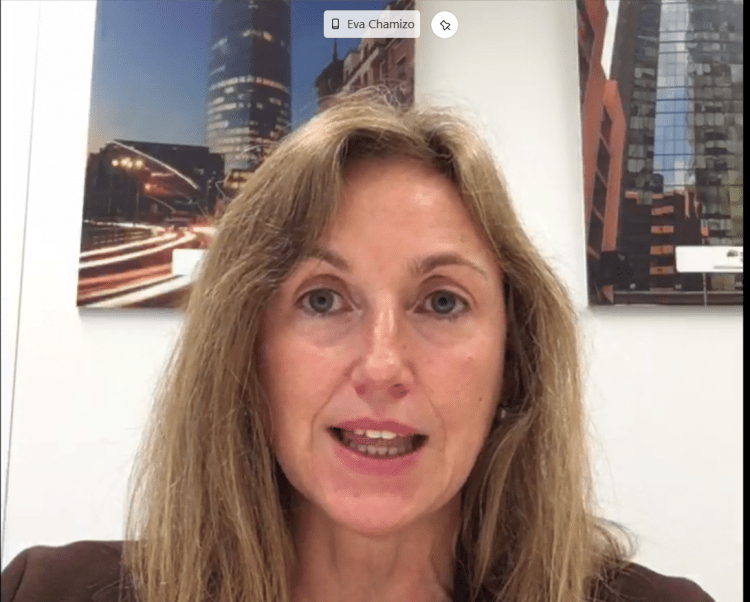
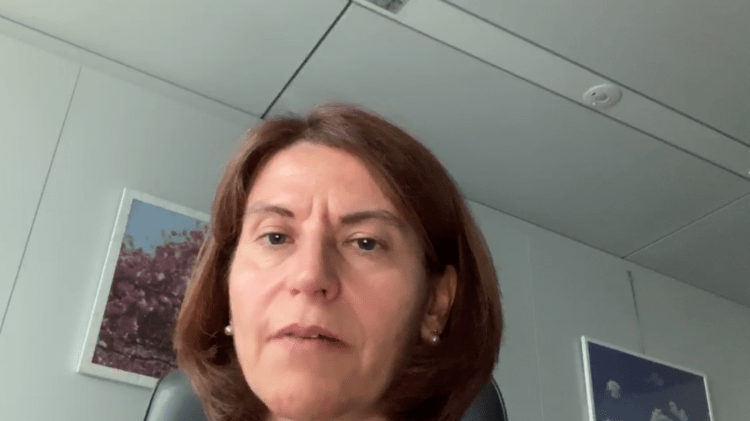 This plan is aimed first and firstly at the ecological transition of the European Union towards a climate-neutral Europe by 2050 in line with the Green Deal. The speaker also highlighted as the second key of the economic recovery, the digital transition to adapt our economies and societies to new technologies. Fábregas went on explaining that it will be up to the Member States to present their national recovery plans to the European Commission from 15 October, which will ensure that they are properly implemented through the auditing and control mechanisms that are being applied to all European funds. The Director of the Working Group for Recovery and Resilience explained that the management of the mechanism’s funds will have to be done in accordance with the constitutional order of each country and in accordance with the distribution of competences in the case of decentralised Member States. However, national governments will have a certain margin to determine how they will manage them, either through transfers to sub-national entities (federated states, autonomous communities, etc.) or through central agencies.
This plan is aimed first and firstly at the ecological transition of the European Union towards a climate-neutral Europe by 2050 in line with the Green Deal. The speaker also highlighted as the second key of the economic recovery, the digital transition to adapt our economies and societies to new technologies. Fábregas went on explaining that it will be up to the Member States to present their national recovery plans to the European Commission from 15 October, which will ensure that they are properly implemented through the auditing and control mechanisms that are being applied to all European funds. The Director of the Working Group for Recovery and Resilience explained that the management of the mechanism’s funds will have to be done in accordance with the constitutional order of each country and in accordance with the distribution of competences in the case of decentralised Member States. However, national governments will have a certain margin to determine how they will manage them, either through transfers to sub-national entities (federated states, autonomous communities, etc.) or through central agencies.


